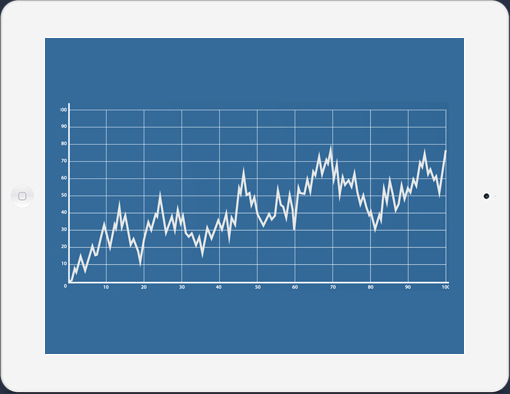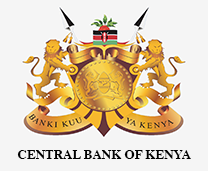Treasury Bonds
Treasury bonds are a secure, medium- to long-term investment that typically offer you interest payments every six months throughout the bond’s maturity. The Central Bank Auctions Treasury bonds on a monthly basis, but offers a variety of bonds throughout the year, so prospective investors should regularly check for upcoming auctions.
Most Treasury bonds in Kenya offer fixed rate, meaning that the interest rate determined at auction is locked in for the entire life of the bond. This makes Treasury bonds a predictable, long-term source of income. The National Treasury also occasionally issues tax-exempt infrastructure bonds, a very attractive investment.
Through the Dhow CSD portal and mobile application, Individuals and Corporate bodies can invest in Treasury bills without going through an intermediary by accessing https://dhowcsd.centralbank.go.ke/ and registering for CSD accounts. Investors inter alia individuals and corporates can equally invest via their respective Kenyan commercial banks and investment banks as custodials.

Secure
Regular Returns
Flexibility
Auctioned Monthly
1. Open a CBK DhowCSD Account via Mobile app or Web Portal
- You can access the CBK DhowCSD platform via the Web portal https://dhowcsd.centralbank.go.ke/ or download the DhowCSD app on Google Play store or Apple App store.
- Please follow the steps provided here DhowCSD Portal | CBK (centralbank.go.ke) – Opening a CSD Account.
2. Decide How You Want to Invest
Treasury bonds are offered for a set amount of years, ranging, to date, from one to 30. When choosing a bond to invest in, you’ll need to consider what is available in the upcoming auction and how long of a commitment you want to make.
There are several types of bonds that are generally made available:
- Most bonds auctioned by the Central Bank are fixed coupon Treasury bonds, which means that the interest rate associated with the bond will not change over the bond’s life, so semiannual interest payments from these bonds will stay the same.
- Infrastructure bonds are used by the government for specified infrastructure projects. These bonds typically see a lot of market interest because returns from them are tax exempt.
- Zero coupon bonds are similar to Treasury bills, in that they are sold at a discount and do not have interest payments. They are also typically issued for a short period of time.
When you are ready to invest, you should begin monitoring the upcoming bond prospectuses, found HERE, to find the right opportunity for you. In the prospectus, you will find information about the different bonds on offer, including the bonds’ durations until maturity, or tenor, and the coupon rates.
The coupon rate refers to the interest payments you will receive each six months. They can either be determined in the prospectus, which is typical for longer tenors, or be market determined. You will also find information in the prospectus about when investors will receive interest payments and the final redemption payment, as well as how much taxation the returns are subject to.
For more popular loans, you might also find information about amortization. When the government expects that a bond will result in significant investment, it will use amortization to reduce its burden when the bonds mature. Amortization means that instead of paying investors back in one lump sum at the end of the bond’s tenor, the Treasury pays portions of the bond back throughout its life. After these portions have been paid back to investors, they receive smaller interest payments as the amount of their money held with the Treasury has been reduced.
3. Complete and Submit Bids
3.1 Via the Dhow CSD Mobile App or Web Portal
Creation of Bids (Bonds)
- After you log in to the Investor Portal, menu items are displayed on the left side of the screen.
- Click on the Auctions menu item and a list of securities available for Auction are displayed.
- Once you decide on preferred security, click on create bid tab against the selected security and a Place New Bid template will pop-up.
- On the left top side of the bid form, you can opt to either place a Competitive or Non-Competitive Type of bid.
- Fill in face value in “Amount” field.
- Fill in desired rate in “Yield” field (applicable only to Competitive option)
- The “Bid broker” field is defaulted to None (however, you may select a broker from options provided when submitting a bid for Bond securities only)
- “Source of funds” field select either Local or Offshore
- “Specific source of funds” field selects either Maturing T-Bill/T-Bond, Others or Salary. If you opt for “Others” you will be required to provide specific detail in “Additional information” field e.g., farming or Retail Business
- Accept “Legal” and “Fund” terms by checking the boxes.
- Click on Place Bid tab at the bottom right side and details of bid will be displayed for you to confirm before completing the process.
- Once confirmed, place the bid and you will receive a pop-up message indicating that your bid has been submitted successfully. An investor will equally receive an email notification on his registered email address.
Approval of Placed Bids for Corporate and Joint Account Investors Only
- For Corporate and Joint Account investors the initial process of placing a bid is as above, the status of bid will be displayed as “Pending Approval”.
- One or two other persons as per the approval mandate set when opening the account will log into the IP and access Bids menu. Click on bid and details will be displayed including Approve and Reject tabs.
- Click on Approve tab and details of bid will be displayed for you to confirm and an additional request for OTP number will be sent to either via your email or SMS as selected in notification menu
- After input of received OTP number, system will process submission of bid.
- Once the bid has been fully approved as per approval mandate status of bid is updated as submitted in Bids menu
Cancellation of Bids
- To cancel a submitted bid before Auction cut-off time, click on the Bids menu item and list of submitted bids will be displayed.
- Select the relevant bid and details will be displayed with a “Cancel bid” tab.
- Click on Cancel bid tab on the top right side and details of bid will be displayed for you to confirm.
- The Bids menu displays your bid with status as cancelled.
3.2 Via Treasury Mobile Direct (USSD)
Please follow the steps provided here https://www.centralbank.go.ke/wp-content/uploads/2023/07/CSD-USSD-Primary-Issues-User-Guide.pdf
4. Getting the T-bond Auction Results
- T-bond Auctions are held every week on Thursday, or, if that auction date is a public holiday, the preceding business day.
- The published T-bond auction results are available on the CBK website https://www.centralbank.go.ke/bills-bonds/treasury-bonds/ and on our social media channels (Twitter – @CBKKenya; WhatsApp Channels – https://whatsapp.com/channel/0029Va5HrcD4dTnNnTguwc24; Facebook and Instagram).
- You access your individual T-bond auction results via the DhowCSD to establish if your bid(s) were successful and how much you are required to pay under the “Transactions” tab.
- The Central Bank of Kenya reserves the right to accept or reject bids in full or partially, without giving any reasons.
5. Payment for Successful T-bond Bids
- Payment for successful T-bond bids should be done by 2pm on the settlement date (Monday immediately after the auction date) or, if that settlement date is a public holiday, the following business day.
- Investor to provide the following details for each payment: CSD Account No., Amount Payable and payment key.
6. Use of T-bond Maturities to pay for Successful Bids
Investors who may have maturities on specific settlement dates, have the option of performing a netting action by activating the netting flag via the DhowCSD web portal under the “my account information” tab then “CSD linking” or if using the DhowCSD mobile app, “settings” tab, then “account”. By activating the netting flag, any corporate (coupon payment or redemption) that coincides with a given bid on a settlement date will be netted off and any refund or top up will be applied.
